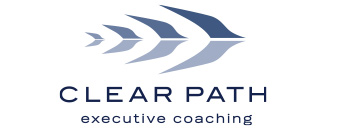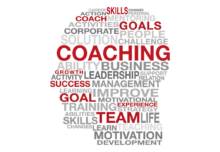Jennifer Zaslow interviews client Erik Gensler, Founder and President of Capacity Interactive, #25 on Crain’s list of the 100 Best Places to Work in NYC in 2016.

Capacity Interactive is a digital marketing consulting firm founded in 2008. CI partners with leading arts and cultural organizations in the U.S and internationally to help them engage audiences, build community and market smarter.
Since 2014, I’ve had the privilege of working with CI’s dynamic founder, Erik Gensler, as his coach. During that time I’ve also had the opportunity to experience CI’s unique corporate culture first-hand, coaching team members individually and in small groups, and acting as a facilitator of CI’s first full-staff retreat in 2016.
What makes CI one of the best places to work in New York City? And how would you describe your corporate culture?
Culture is very hard to describe. It is so many things. I think the most important thing is creating a space of trust and humanity where you empower your employees to make the right decisions rather than coming from a place of distrust and making all sorts of rules to control people to get them to comply. We try to be trusting and open and fair.
You have to treat people as full humans. That sounds crazy to have to say but I think it is inhumane to give someone only two weeks of vacation or to pay them a wage that essentially puts them in poverty, or make them jump through hoops to have health insurance or the ability to save for retirement. So from the beginning we give everyone five weeks of paid time off, a 4% matching 401K, eligibility for health benefits, and a fair salary.
What led you to want to work with a coach, and what do you see as the value of coaching for leaders?
Deciding to work with a coach (you) is one of the best decisions I have ever made as a business owner.
The best thing you do is help me see things with perspective. When we started you asked me to draw a pie with my priorities as the slices, organized by size. And from the beginning it forced me to work to see things from a distance. And that all parts of my life are related.
When I see people going through pain and challenges, they are often stuck in a moment. It is only when you are able to step back and lose some of that attachment to that moment, or that particular struggle, that you are able to have clarity and make clear decisions. Easier said than done, for sure. You often ask me to look at something with “non-attachment.” And this is what I am working towards, though it is very challenging.
Owning and running a company is so rewarding but can also be quite intense. You have to make so many decisions all the time. I have an incredible leadership team and we work really well together to make decisions. But it is so helpful to have someone fully neutral to talk through difficult decisions and to gut check my instincts. I often say the actual work is not the hard part, the human elements are trickiest. And that is where you and I spend much of our time.
We’ve talked a lot over the years about the role of values in the workplace. What role do values play in CI’s culture?
You once told me, and I’ve never forgotten, “the work always changes, but the values stay the same.” So it is critical to have a baseline to apply to all situations, particularly hiring. We work to hire people according to a criteria of values which are, of course, the values of the organization. The values we focus on are: Openness, Happiness, Self-improvement, Sharing, Measurement, Partnership and Passion.
Take the “Passion” value. We only hire people who love and are passionate about the arts and I think that sets us up to be successful because loving the arts is an indicator of certain other values. While I know this is a generalization, people who love the arts tend to be curious, creative, compassionate, and smart. So I think we are very lucky to work in a space that attracts people like that. We have made loving the arts the #1 criteria in hiring. We know we can teach the specific skills but you need to come from a place of love for the arts. With that, you bring a different level of care to the work because we know the work ultimately benefits an ecosystem we all care deeply about.
As far as the Openness value, we all sit in an open seating area and everyone moves seats every three months. Our team has full access to everyone else regardless of title. We try to communicate things that affect everyone as soon as we know them. We do not want a culture where there are secrets or gossip, and so we try to always get in front of that. As a leadership team, we make sure we are displaying and rewarding openness. Values are meaningless unless everyone, particularly the leadership team, is committed to living them.
Something I’ve observed as your coach is that you are always searching for your own growing edge as a leader. Is there a connection between your own commitment to learning and the culture you’ve created?
If you are not learning, then you are staying stagnant, or worse, falling behind. Learning requires constantly paying attention to everything around you and being open to change. This is particularly true in the digital world, which evolves so quickly. I often say, “how humans communicate has changed more dramatically in the last 15 years than in any other time in human history.” Most people do not like change, but in order to evolve, we must force ourselves to change. And change is hard and often requires some level of pain. So you have to face that. I am attracted to people who like to learn. To be successful at Capacity Interactive, you have to be curious and open to learning and changing; and then you must use your curiosity and knowledge to help push our clients and our industry to change along with us.
Erik, you and I have known each other a long time in different professional contexts. What has your own journey looked like? What brought you here?
I have always loved the arts. Throughout high school and college, I was involved in theater productions as an actor and producer. After college, I went into management consulting, where I picked up valuable skills, but realized I needed to work in a field that I was passionate about. That brought me to NBC, first as an NBC Page, with the peacock tie and all, and then as part of their rotational Sales Associate program. After a number of years, theater was still calling so I left to work as Director of Sponsorship at a company called The Marketing Group, where I worked with clients including Roundabout Theatre. I learned so much about how not-for-profit arts organizations operated and knew that it was the world I wanted to be in.
I worked at NYC Opera overseeing digital marketing, which is where we met and worked together. It was an exciting time when Gerard Mortier was going to come to the US and shake up the opera scene. There was an openness to innovation and experimentation, so I was able to test things out like Google AdWords, Google Analytics, and was producing videos and podcasts to support our productions, working to behave more like a media company. It was the early days of many of these platforms and most arts organizations were not yet using them. Unfortunately, City Opera fell on tough times so I evolved my full-time role to a consulting role which allowed me to work simultaneously with other organizations on digital marketing. I am very grateful to Alvin Ailey American Dance Theater, which had received a major grant that funded digital marketing innovation that made us able to experiment with social media in its early days, along with other digital innovations like retargeting and triggered emails.
I began to speak about the importance of digital marketing at arts conferences using City Opera and Ailey as case studies of how digital marketing can benefit arts organizations and from there Capacity Interactive was off to the races. Over the last eight years, many arts organizations have needed help with their digital transformations. I was in the right place at the right time. We are now a team of close to 40 working with over 100 cultural organizations across the country on all things digital marketing.








